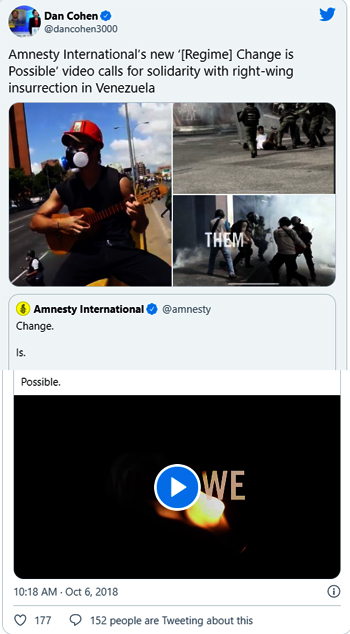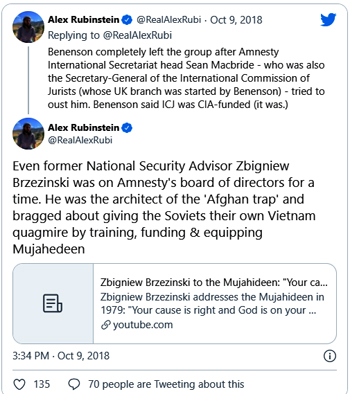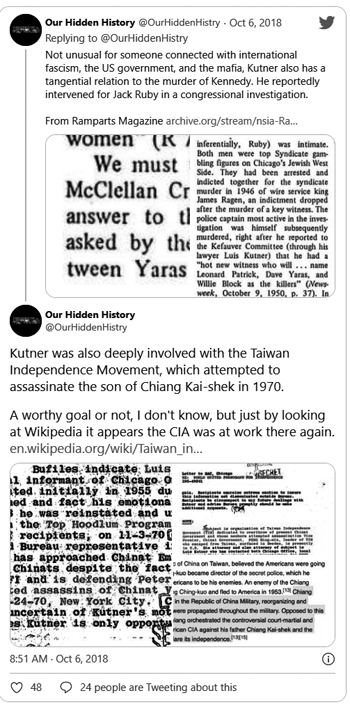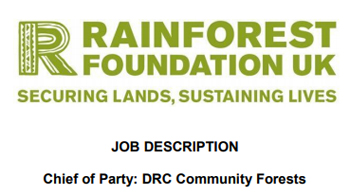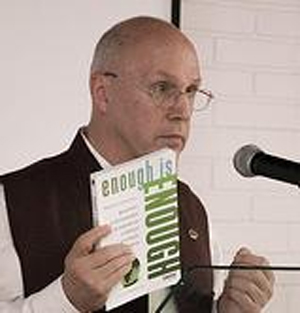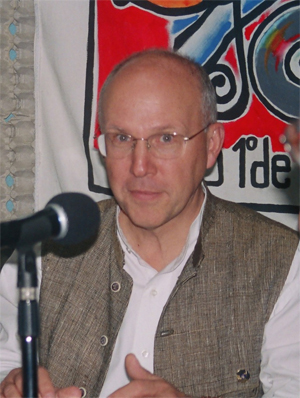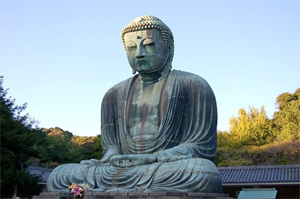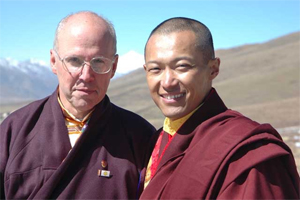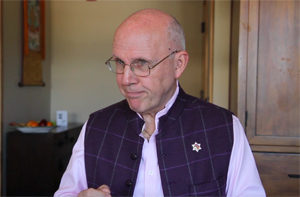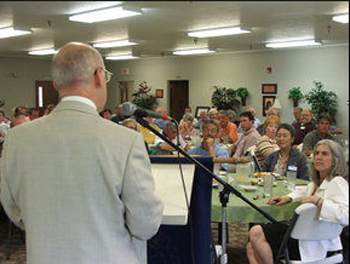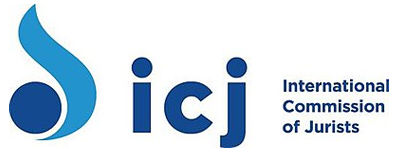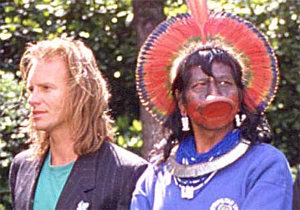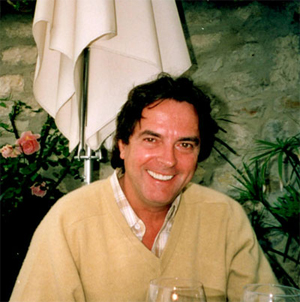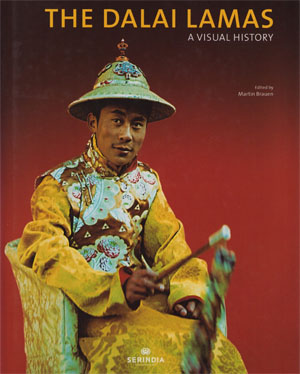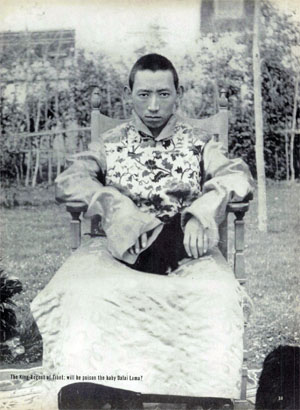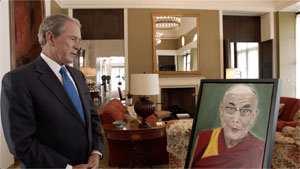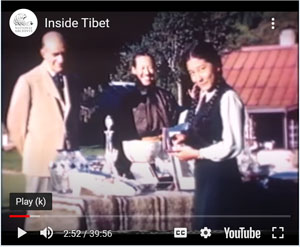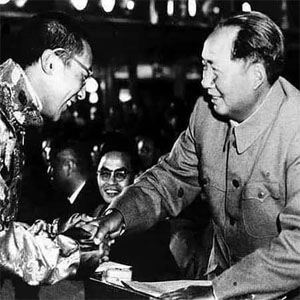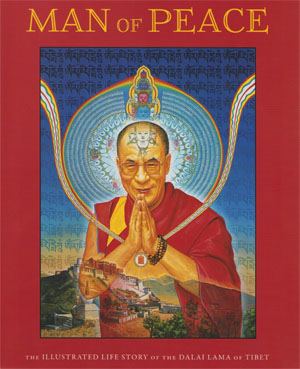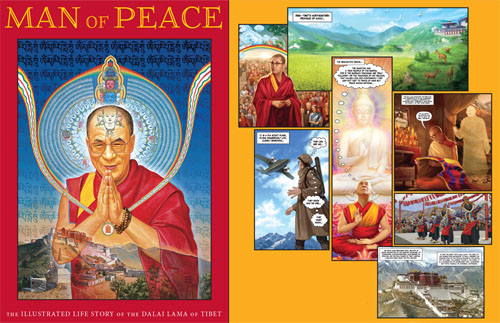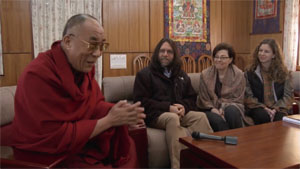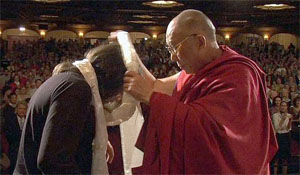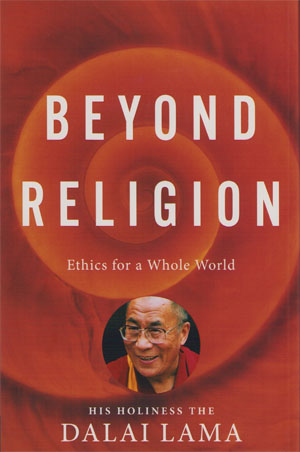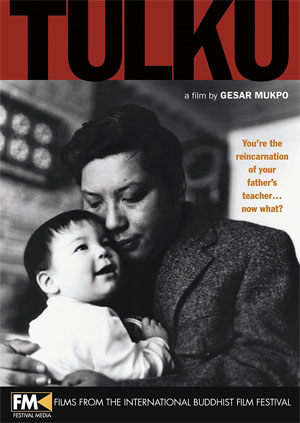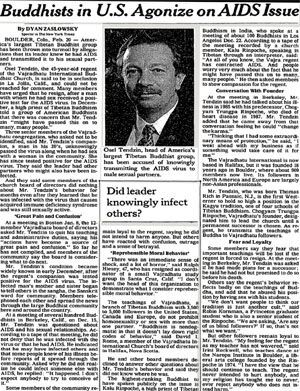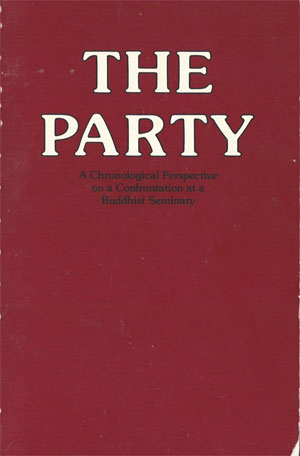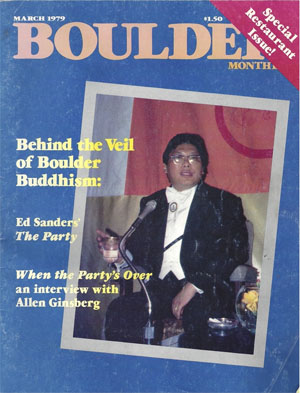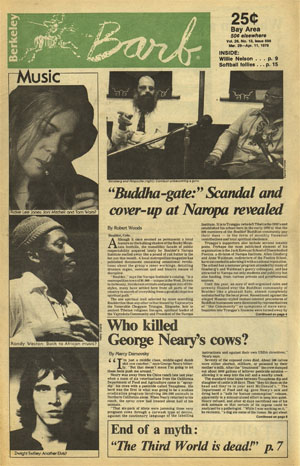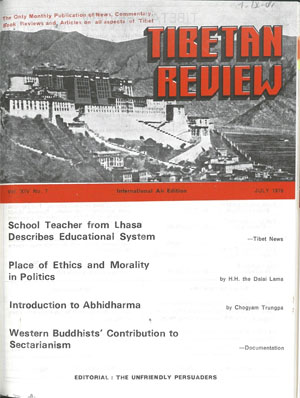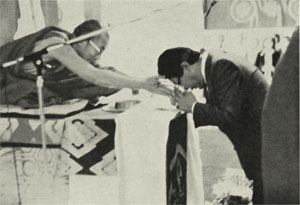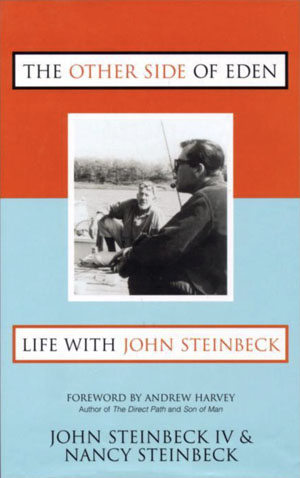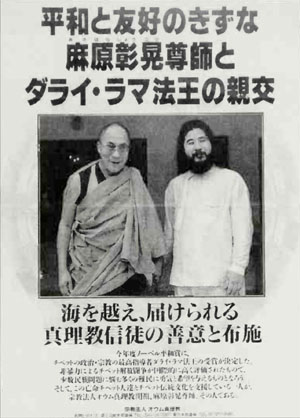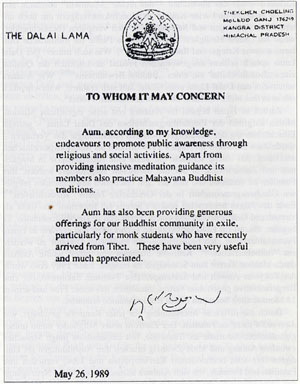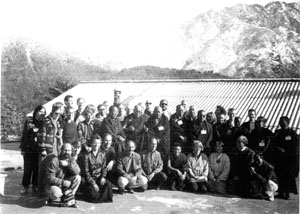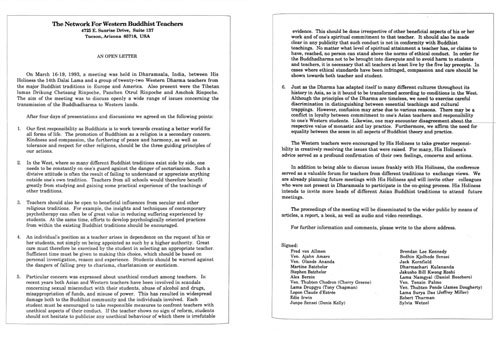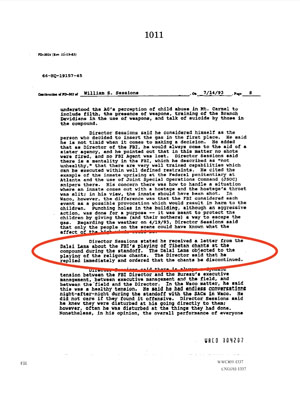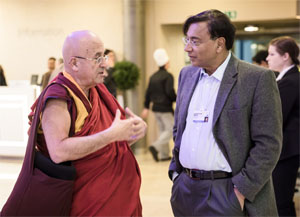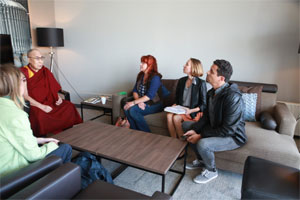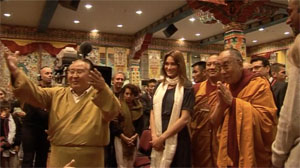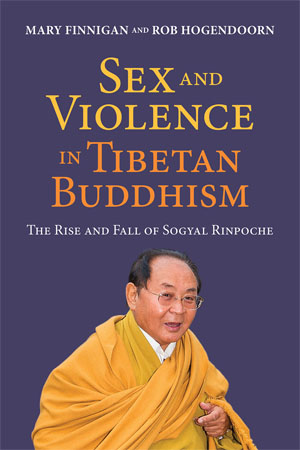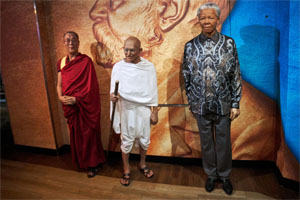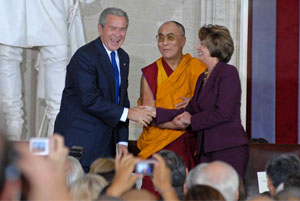by Alexander Rubinstein
1/17/2019
As Sakyong, Mipham’s management approach was distinctly corporate. By 2002, he’d appointed the former public-relations head of Amnesty International as Shambhala’s new president [Richard Reoch, joined the International Secretariat of Amnesty International 1971-1993. He then served as a trustee of The Rainforest Foundation 1996–2015]
-- Survivors of an International Buddhist Cult Share Their Stories: An investigation into decades of abuse at Shambhala International, by Matthew Remski
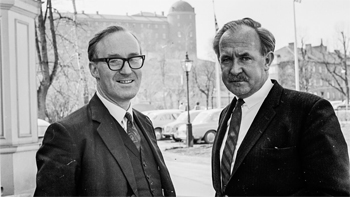
Peter Benenson, left, with George Ivan Smith at a 1966 Nordic Africa Institute Seminar. Uppsala-Bild | Creative Commons
LONDON — Amnesty International, the eminent human-rights non-governmental organization, is widely known for its advocacy in that realm. It produces reports critical of the Israeli occupation in Palestine and the Saudi-led war on Yemen. But it also publishes a steady flow of indictments against countries that don’t play ball with Washington — countries like Iran, China, Venezuela, Nicaragua, North Korea and more. Those reports amplify the drumbeat for a “humanitarian” intervention in those nations.
Amnesty’s stellar image as a global defender of human rights runs counter to its early days when the British Foreign Office was believed to be censoring reports critical of the British empire. Peter Benenson, the co-founder of Amnesty, had deep ties to the British Foreign Office and Colonial Office while another co-founder, Luis Kutner, informed the FBI of a gun cache at Black Panther leader Fred Hampton’s home weeks before he was killed by the Bureau in a gun raid.
These troubling connections contradict Amnesty’s image as a benevolent defender of human rights and reveal key figures at the organization during its early years to be less concerned with human dignity and more concerned with the dignity of the United States and United Kingdom’s image in the world.
A conflicted beginning
Amnesty’s Benenson, an avowed anti-communist, hailed from a military intelligence background. He pledged that Amnesty would be independent of government influence and would represent prisoners in the East, West, and global South alike.
Peter Benenson (31 July 1921 – 25 February 2005) was a British lawyer, human rights activist and the founder of human rights group Amnesty International (AI)...
He was born in London as Peter James Henry Solomon, to a large Jewish family, the only son of British-born Harold Solomon and Russian-born Flora Benenson; Peter Benenson adopted his mother's maiden name later in life. His army officer father died from a long-term injury when Benenson was aged nine, and he was tutored privately by W. H. Auden before going to Eton. At the age of sixteen, he helped to establish a relief fund with other schoolboys for children orphaned by the Spanish Civil War. He took his mother's maiden name of Benenson as a tribute to his grandfather, the Russian gold tycoon Grigori Benenson, following his grandfather's death.
He enrolled for study at Balliol College, Oxford but World War II interrupted his education. He served in the Intelligence Corps at the Ministry of Information where he met his first wife, Margaret Anderson. He worked at Bletchley Park during World War II in the Testery. He is listed as RSM Benenson in room 41 as a cryptographer.Bletchley Park is an English country house and estate in Milton Keynes (Buckinghamshire) that became the principal centre of Allied code-breaking during the Second World War. ...
During World War II, the estate housed the Government Code and Cypher School (GC&CS), which regularly penetrated the secret communications of the Axis Powers – most importantly the German Enigma and Lorenz ciphers; among its most notable early personnel the GC&CS team of codebreakers included Alan Turing, Gordon Welchman, Hugh Alexander, Bill Tutte, and Stuart Milner-Barry. The nature of the work there was secret until many years after the war.
According to the official historian of British Intelligence, the "Ultra" intelligence produced at Bletchley shortened the war by two to four years, and without it the outcome of the war would have been uncertain. The team at Bletchley Park devised automatic machinery to help with decryption, culminating in the development of Colossus, the world's first programmable digital electronic computer. Codebreaking operations at Bletchley Park came to an end in 1946 and all information about the wartime operations was classified until the mid-1970s.
-- Bletchley Park, by Wikipedia
After demobilisation in 1946, Benenson began practising as a barrister before joining the Labour Party and standing unsuccessfully for election at Streatham in 1950 and for North Herts constituency till 1959. He was one of a group of British lawyers who, in 1957, founded JUSTICE, the UK-based human rights and law reform organisation...
Benenson claimed to have been shocked and angered by a newspaper report of two Portuguese students from Coimbra sentenced to seven years in prison for raising their glasses in a toast to freedom during the regime of António de Oliveira Salazar, but the story has been shown to be a myth...He wrote to David Astor, editor of The Observer. On 28 May 1961, Benenson's article, entitled "The Forgotten Prisoners", was published. The letter asked readers to write letters showing support for all those imprisoned for their political or religious beliefs. To co-ordinate such letter-writing campaigns, Amnesty International was founded in London in July 1961 at a meeting of Benenson and six other men, who included a Conservative, a Liberal and a Labour MP.The British Section of Amnesty International
Officers
Chairman: Lionel Elvin (Director, Institute of Education, University of London)
Vice-Chairmen: Eric Baker; Henry Warner
Hon. Secretaries: Peter Benenson and Neville Vincent (Barristers-at-Law)
Hon. Treasurer: Duncan Guthrie (Director, Polio Research Fund)
Trustees of 'The Prisoners of Conscience Fund'
The Rt. Rev. The Bishop of Birmingham (Anglican)
Professor Ritchie Calder (Humanist)
Ian Gilmour, M.P. (Conservative)
The Rev. Dr. I. Grunfeld (Jewish)
F. Elwyn Jones, Q.C., M.P. (Labour)
Sean MacBride, S.C. (Ireland)
Dr. Ernest Payne (Baptist)
The Most Rev. Archbishop Roberts, S.J. (Roman Catholic)
Jeremy Thorpe, M.P. (Liberal)
Heads of Departments
Secretary: Albert Lodge
Library: Mrs. Christel Marsh
Local Groups: Mrs. Marlys Deeds
Membership: Mrs. Marna Glyn
Relief: Mrs. Edith Singer
Administration: Miss Christine Chattin
-- Amnesty International (British Section): Movement for freedom of opinion and religion. Second Annual Report 1st June 1962-31st May 1963
The response was so overwhelming that within a year various groups of letter-writers had formed in more than a dozen countries.
Initially appointed general secretary of AI, Benenson stood down in 1964 owing to ill health. By 1966, Amnesty International faced an internal crisis. The advisory position of president of the International Executive was then created for him. In 1966, after a report of British use of torture in Yemen, he began to make allegations that the British government had infiltrated the governance of AI. An inquiry was set up which reported at Elsinore in Denmark in 1967. The allegations were rejected and Benenson resigned from AI.
While never again active in the organisation, Benenson was later personally reconciled with other executives, including Seán MacBride.
-- Peter Benenson, by Wikipedia
But during the 1960s the U.K. was withdrawing from its colonies and the Foreign Office and Colonial Office were hungry for information from human-rights activists about the situations on the ground. In 1963, the Foreign Office instructed its operatives abroad to provide “discreet support” for Amnesty’s campaigns.
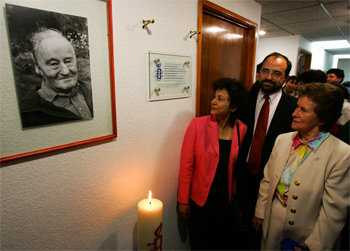
Amnesty International staff pay tribute to founder Peter Benenson in Mexico City, Aug. 9 2005. Eduardo Verdugo | AP
Also that year, Benenson wrote to Colonial Office Minister Lord Lansdowne a proposal to prop up a “refugee counsellor” on the border of present-day Botswana and apartheid South Africa. That counsel was to assist refugees only, and explicitly avoid aiding anti-apartheid activists. “Communist influence should not be allowed to spread in this part of Africa, and in the present delicate situation, Amnesty International would wish to support Her Majesty’s Government in any such policy,” Benenson wrote. The next year, Amnesty ceased its support for anti-apartheid icon and the first president of a free South Africa, Nelson Mandela.
The following year, in 1964, Benenson enlisted the Foreign Office’s assistance in obtaining a visa to Haiti. The Foreign Office secured the visa and wrote to its Haiti representative Alan Elgar saying it “support[ed] the aims of Amnesty International.” There, Benenson went undercover as a painter, as Minister of State Walter Padley told him prior to his departure that “We shall have to be a little careful not to give the Haitians the impression that your visit is actually sponsored by Her Majesty’s Government.”
The New York Times exposed the ruse, leading some officials to claim ignorance; Elgar, for example, said he was “shocked by Benenson’s antics.” Benenson apologized to Minister Padley, saying “I really do not know why the New York Times, which is generally a responsible newspaper, should be doing this sort of thing over Haiti.”
Dan Cohen@dancohen3000
Amnesty International's new '[Regime] Change is Possible' video calls for solidarity with right-wing insurrection in VenezuelaAmnesty International @amnesty
Change.
Is.
Possible.
10:18 AM Oct 6, 2018
Letting politics creep into mission
In 1966, an Amnesty report on the British colony of Aden, a port city in present-day Yemen, detailed the British government’s torture of detainees at the Ras Morbut interrogation center. Prisoners there were stripped naked during interrogations, were forced to sit on poles that entered their anus, had their genitals twisted, cigarettes burned on their face, and were kept in cells where feces and urine covered the floor.
The report was never released, however. Benenson said that Amnesty general secretary Robert Swann had censored it to please the Foreign Office, but Amnesty co-founder Eric Baker said Benenson and Swann had met with the Foreign Office and agreed to keep the report under wraps in exchange for reforms. At the time, Lord Chancellor Gerald Gardiner wrote to Prime Minister Harold Wilson that “Amnesty held the [report] as long as they could simply because Peter Benenson did not want to do anything to hurt a Labour government.”
Then something changed. Benenson went to Aden and was horrified by what he found, writing “I never came upon an uglier picture than that which met my eyes in Aden,” despite his “many years spent in the personal investigation of repression.”
A tangled web
As all of this was unfolding, a similar funding scandal was developing that would rock Amnesty to its core. Polly Toynbee, a 20-year-old Amnesty volunteer, was in Nigeria and Southern Rhodesia, the British colony in Zimbabwe, which was at the time ruled by the white settler minority. There, Toynbee delivered funds to prisoner families with a seemingly endless supply of cash. Toynbee said that Benenson met with her there and admitted that the money was coming from the British government.
Mary Louisa "Polly" Toynbee (/ˈtɔɪnbi/; born 27 December 1946) is a British journalist and writer. She has been a columnist for The Guardian newspaper since 1998.
She is a social democrat and was a candidate for the Social Democratic Party in the 1983 general election. She now broadly supports the Labour Party, although she was critical of its left-wing leader, Jeremy Corbyn.
Toynbee previously worked as social affairs editor for the BBC and also for The Independent newspaper. She is vice-president of Humanists UK, having previously served as its president between 2007 and 2012. She was also named Columnist of the Year at the 2007 British Press Awards.
Polly Toynbee was born at Yafford on the Isle of Wight, the second daughter of the literary critic Philip Toynbee (by his first wife Anne), granddaughter of the historian Arnold J. Toynbee, and great-great-niece of philanthropist and economic historian Arnold Toynbee, after whom Toynbee Hall in the East End of London is named. Her parents divorced when Toynbee was aged four and she moved to London with her mother.
Toynbee attended Badminton School, a girls' independent school in Bristol, followed by Holland Park School, a state comprehensive school in London, as she had failed the 11-plus examination. She passed one A-level, obtained a scholarship to read history at St Anne's College, Oxford, but dropped out of university after eighteen months. During her gap year, in 1966, she worked for Amnesty International in Rhodesia (which had just unilaterally declared independence) until she was expelled by the government. She published her first novel, Leftovers, in 1966. Following her expulsion from Rhodesia, Toynbee revealed the existence of the "Harry" letters, which detailed the alleged funding of Amnesty International in Rhodesia by the British government.The "Harry" letters, written by Peter Benenson, founder of the international human rights group Amnesty International, detail the funding during 1966 of Amnesty's mission in the Rhodesian capital, Salisbury, by somebody or something referred to as "Harry", which was commonly interpreted as code for the British government, which was headed by British Prime Minister Harold Wilson. The letters were made public in March 1967 by Polly Toynbee, an Englishwoman who had worked for Amnesty in Salisbury as a 19-year-old gap year student in early 1966. Scandal resulted within both the British government and Amnesty, and Benenson left the group soon afterward.
With Amnesty in Rhodesia, Toynbee became suspicious of the disproportionately-large amounts of money apparently at the disposal of Amnesty's mission there and the modest scale of Amnesty's operations in both Rhodesia and Nigeria. Toynbee asked Benenson about the origin of the money and pressed him on rumours that Britain was funding Amnesty's mission in Salisbury. According to her, he admitted it and referred to it as "Operation Lordship. That ran at odds with Amnesty's claimed apolitical stance.
Toynbee then acquired a set of letters that appeared to confirm her suspicions. Addressed to an Amnesty official in Salisbury, they described efforts to gain external financing for the Rhodesia mission. Toynbee made the existence of the letters public in March 1967 and alleged that Amnesty had been "bought off" by Whitehall.
When questioned in Parliament on payments by the government to Amnesty, Wilson said that his administration had indeed been "approached by a member of the organisation" and had given a list of possible financial donors in response. Amnesty claimed that any such activities had been unilaterally conducted by Benenson on his own accord and denied any collective wrongdoing. Benenson held that the money had been intended for Rhodesian political prisoners and their families and said that the British government had wished for the payments to be kept secret for political reasons.
The relationship between Whitehall and Amnesty was ended as a result of the affair, with Amnesty reaffirming its official impartiality.
In early 1966, during her gap year from studies at Oxford University, Polly Toynbee served as the secretary for the peer and former West Indian cricketer Learie Constantine on an Amnesty International mission to Nigeria and Rhodesia, two countries in Africa. In Lagos, the capital of Nigeria, Toynbee and the other Amnesty members were supposed to be helping political detainees, but Toynbee recalled, "We sat around drinking and entertaining the press. We must have spent an enormous amount but we never achieved anything. We never saw anyone important. We just got vague assurances that the prisoners were all right." The mission then went on to Rhodesia, where the predominantly-white minority government under Ian Smith had unilaterally declared independence the previous November. Since the declaration of independence, there had been reports of mass arrests of black nationalist leaders.
During Toynbee's six weeks in Salisbury, she and other volunteers dispensed funds to the families of political detainees and tried to arrange legal aid for the prisoners. Toynbee claimed that Amnesty's operations in both Nigeria and Rhodesia were little more than nominal and became suspicious of the financial situation surrounding the Salisbury mission in particular. Amnesty then had a modest budget for such a prominent organisation since it operated out of founder Peter Benenson's cramped legal chambers, and during the financial year 1965–66, it boasted an annual budget of only £7,000. However, Toynbee said she found that there was, in her own words, a seemingly "endless supply of money. I could go to the bank and draw out £200 at a time. And there was no check on what I did with the money." When Benenson visited the group in Salisbury, Toynbee asked him where the funds came from and said there were rumours flying around the city that it was coming from Whitehall, the British government. According to Toynbee, Benenson said the British government was indeed supplying money. He reportedly described the transactions as "Operation Lordship".
Toynbee and others were expelled from Rhodesia in March 1966 for refusing information to the British South Africa Police. While she was there, however, Toynbee acquired some letters that she said had been abandoned in a safe. The letters appeared to have been written in London by Benenson between January and March 1966. Some were typed, and others were in his handwriting. Alternately signed "Margaret" or "Peter" and addressed to the Amnesty representative in Salisbury, they contained frequent references to somebody or something called "Harry", which Toynbee interpreted as code for the British government.
Many of the letters contained detailed requests for payments and funding. One of them, dated 2 February 1966, included this passage: "What with North Hull Harry wants a fair buzz of legal activity. Harry's financial problems apparently have been solved and he's in a generous mood." Toynbee construed that as a reference to the previous month's Kingston upon Hull North by-election, which had increased the Labour government's majority in the House of Commons from three to four members. Toynbee's interest was aroused as Amnesty took pride in its declared apolitical stance, a concept very much at odds with the idea of funding from a national government.
On 5 March 1967, Toynbee revealed the existence of the letters in newspaper interviews. She claimed that Amnesty had been "bought off" by the British government: "Instead of dealing with legal test cases," she said, "it is wasting its time on welfare work which could equally well be done by the Red Cross".
The letters' public appearance caused a scandal. Amnesty distanced itself from the Rhodesia mission and claimed that any such activities had been unilaterally undertaken by Benenson alone. On 9 March, in the House of Commons, British Prime Minister Harold Wilson answered a parliamentary question on the letters from Knox Cunningham, who asked whether or not the "payments made to Amnesty International were made with his [Wilson's] authority; for what reason such payments were made; and what was the total amount paid by Her Majesty's Government during 1966 to Amnesty International". Wilson replied that the government had been "approached by a member of the organisation concerned for the humanitarian purpose of helping the families of men who have been oppressively detained. We thought it right to suggest possible donors who might be willing to help".
Benenson contended that the money had been for the prisoners and their families and had not been gifted to Amnesty by the British government. He insisted that the government had wished the payments to remain secret for political reasons. A private letter written by Benenson two months before Toynbee's interviews said that a third party, the hotelier Charles Forte, had been asked by Whitehall to provide £10,000 for the Rhodesia mission. In his letter, Benenson appeared to imply that Forte's donation might lead to an honour from the British government. Benenson later returned the money to avoid jeopardising the political reputation of the government members involved in the payments.
Following a state of crisis, Amnesty held a meeting in Denmark in March 1967 at which Benenson's resignation was accepted. Benenson resigned on the grounds that Amnesty's offices had been bugged by the British government. In a report, Amnesty Chairman Seán MacBride referred to Beneson's "erratic activities" and "unilateral decisions". Benenson responded by demanding MacBride's resignation and pointed out that the American Central Intelligence Agency had funded the International Commission of Jurists of which MacBride was Secretary-General.Seán MacBride (26 January 1904 – 15 January 1988) was an Irish Clann na Poblachta politician who served as Minister for External Affairs from 1948 to 1951, Leader of Clann na Poblachta from 1946 to 1965 and Chief of Staff of the IRA from 1936 to 1937. He served as a Teachta Dála (TD) from 1947 to 1957...
[[[Clann na Poblachta ([kˠɫan̪ˠ n̪ˠə pʷɔbʷɫəxt̪ˠə] – "Family/Children of the Republic") was an Irish republican political party founded in 1946 by Seán MacBride, a former Chief of Staff of the Irish Republican Army.
-- Clann na Poblachta, by Wikipedia]]]
MacBride was Minister of External Affairs when the Council of Europe was drafting the European Convention on Human Rights. He served as President of the Committee of Ministers of the Council of Europe from 1949 to 1950 and is credited with being a key force in securing the acceptance of this convention, which was finally signed in Rome on 4 November 1950. In 1950 he was president of the Council of Foreign Ministers of the Council of Europe, and he was vice-president of the Organisation for European Economic Co-operation from 1948 to 1951. He was responsible for Ireland not joining the North Atlantic Treaty Organisation (NATO).
As Minister for External Affairs, MacBride declined the offer of Ireland joining NATO to resist Soviet aggression. He refused because it would mean that the Republic recognised Northern Ireland. He did however state that Ireland was strongly opposed to communism. In 1950 he offered a bi-lateral alliance to the United States, but this was rejected. Ireland remained outside the military alliance. In 1949 Ireland joined the Organisation For European Economic Co-Operation and the Council of Europe as founder-members.
MacBride also argued for the "return of sterling assets" to Ireland: essentially a decoupling of the Irish pound from the Pound sterling by selling British gilts and investing the money in domestic enterprise. Officials in the Irish Department of Finance, who had an excellent relationship with the British Treasury and thought a decoupling would isolate Ireland and discourage investment, resisted the policy. The matter came to a head at the time of the 1949 devaluation of sterling. Despite two government meetings to discuss decoupling, it was decided to retain the sterling link—which remained until 1979.
-- Seán MacBride, by Wikipedia
The relationship between Amnesty and the British government was suspended.
-- Harry letters affair, by Wikipedia
...Toynbee worked for many years at The Guardian before joining the BBC where she was social affairs editor (1988–1995). At The Independent, which she joined after leaving the BBC, she was a columnist and associate editor, working with then editor Andrew Marr. She later rejoined The Guardian. She has also written for The Observer and the Radio Times; at one time she was an editor for the Washington Monthly.
-- Polly Toynbee, by Wikipedia
Toynbee and others were forced to leave Rhodesia in March 1966. On her way out, she grabbed documents from an abandoned safe including letters from Benenson to senior Amnesty officials working in the country that detailed Benenson’s request to Prime Minister Wilson for money, which had been received months prior.
In 1967 it was revealed that the CIA had established and was covertly funding another human rights organization founded in the early 1960s, the International Commission of Jurists (ICJ) through an American affiliate, the American Fund for Free Jurists Inc.
Benenson had founded, alongside Amnesty, the U.K. branch of the ICJ, called Justice. Amnesty international secretariat, Sean MacBride, was also the secretary-general of ICJ.
JUSTICE is a human rights and law reform organisation based in the United Kingdom. It is the British section of the International Commission of Jurists, the international human rights organisation of lawyers devoted to the legal protection of human rights worldwide. Consequently, members of JUSTICE are predominantly barristers and solicitors, judges, legal academics, and law students...
JUSTICE was founded in 1957, following the visit of a group of British lawyers to observe the treason trials of members of the African National Congress (ANC) in apartheid South Africa and the show-trials in communist Hungary. Its first chairman was Hartley Shawcross, the chief British prosecutor at Nuremberg, and another founder was Peter Benenson who would later establish Amnesty International. Indeed, when AI first started in 1961, it shared its offices with JUSTICE.
In 1958, it became the British section of the International Commission of Jurists ('ICJ'). The original terms of JUSTICE's constitution committed it `to uphold and strengthen the principles of the Rule of Law in the territories for which the British Parliament is directly or ultimately responsible: in particular, to assist in the administration of justice and in the preservation of the fundamental liberties of the individual'. Indeed, JUSTICE itself gave birth to a number of subordinate branches in what were then still British colonies and dependent territories. As each of these countries moved towards independence in the 1960s, the branches reconstituted themselves as national sections of the ICJ. This, in turn, shifted the emphasis of JUSTICE's own work towards the UK itself.
Thus, although founded with an international orientation, JUSTICE quickly established a specific focus on the rule of law and protection of fundamental rights in the UK. Through the work of its first secretary, Tom Sargant OBE, JUSTICE rapidly developed expertise in cases involving miscarriages of justice, and secured the release of many prisoners who had been wrongly imprisoned. Sargant was instrumental in the establishment of the BBC series Rough Justice, which led to the release from prison of eighteen victims of miscarriages of justice....
-- JUSTICE, by Wikipedia
Then, the “Harry letters” hit the press. Officially, Amnesty denied knowledge of the payments from Wilson’s government. But Benenson admitted that their work in Rhodesia had been funded by the government, and returned the funds out of his own pocket. He wrote to Lord Chancellor Gardiner that he did it so as not to “jeopardize the political reputation” of those involved. Benenson then returned unspent funds from his two other human-rights organizations, Justice (the U.K. branch of the CIA-founded ICJ) and the Human Rights Advisory Service.
Benenson’s behavior in the wake of the revelations about the “Harry letters” infuriated his Amnesty colleagues. Some of them would go on to claim that he suffered from mental illness. One staffer wrote:
Peter Benenson has been levelling accusations, which can only have the result of discrediting the organisation which he has founded and to which he dedicated himself. …All this began after soon after he came back from Aden, and it seems likely that the nervous shock which he felt at the brutality shown by some elements of the British army there had some unbalancing effect on his judgment.”
Alex Rubenstein @RealAlexRubi Oct 9, 2018
Replying to @RealAlexRubi
Benenson completely left the group after Amnesty International Secretariat head Sean Macbride - who was also the Secretary-General of the International Commission of Jurists(whose UK branch was started by Benenson) -- tried to oust him. Benenson said ICJ was CIA-funded (it was.)
Alex Rubinstein @RealAlexRubi
Even former National Security Advisor Zbigniew Brzezinski was on Amnesty's board of directors for a time. He was the architect of the 'Afghan trap' and bragged about giving the Soviets their own Vietnam quagmire by training, funding & equipping Mujahedeen.Zbigniew Brzezinski to the Mujahideen: "Your cause is right and God is on your side!"
3:34 PM Oct 9, 2018
Later that year, Benenson stepped down as president of Amnesty in protest of its London office being surveilled and infiltrated by British intelligence — at least according to him. Later that month, Sean MacBride, the Amnesty official and ICJ operative, submitted a report to an Amnesty conference that denounced Benenson’s “erratic actions.” Benenson boycotted the conference, opting to submit a resolution demanding MacBride’s resignation over the CIA funding of ICJ.
Amnesty and the British government then suspended ties. The rights group then promised to “not only be independent and impartial but must not be put into a position where anything else could even be alleged” about its collusion with governments in 1967.
Amnesty’s role in the death of Black Panther Fred Hampton
But two years later, senior Amnesty officials engaged in far more troubling coordination with Western intelligence agencies.
FBI documents, released by the Bureau in the spring of 2018 as a part of a series of disclosures of documents pertaining to the assassination of President John Kennedy, detail Amnesty International’s role in the killing of Black Panther Party (BPP) Deputy Chairman Fred Hampton, the 21-year-old up-and-coming black liberation icon — a killing that was widely believed to be an assassination but was ruled officially as a justifiable homicide.
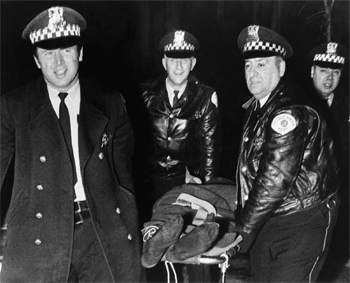
Chicago police remove the body of Fred Hampton, leader of the Illinois Black Panther Party, who was slain by police on Chicago's west side Dec. 4, 1969. (AP Photo)
Amnesty International co-founder Luis Kutner attended a November 23, 1969 speech of Hampton’s delivered at the University of Illinois.
Luis Kutner (June 9, 1908 – March 1, 1993), was a US human rights activist, FBI informant and lawyer who was on the National Advisory Council of the US branch of Amnesty International during its early years and created the concept of a living will. He was also notable for his advocacy of "world habeas corpus", the development of an international writ of habeas corpus to protect individual human rights. He was a founder of World Habeas Corpus, an organization created to fight for international policies which would protect individuals against unwarranted imprisonment. Kutner's papers are at the Hoover Institution Archives at Stanford University.[8]
Kutner gained national recognition in 1949, when he obtained freedom for a black mechanic from Waukegan, Illinois, who had served 26 years of a life term sentence for raping an itinerant. A Federal judge described as "a sham" the defendant's 1924 trial in which a vengeful prosecutor withheld vital evidence. He also helped free Hungarian Cardinal József Mindszenty, American expatriate poet Ezra Pound, former Congo President Moise Tshombe and represented the Dalai Lama and Tibet. Kutner is widely known as one of the most prominent human-rights attorneys of the twentieth century.
Declassified records show that Kutner had a history of collusion with the FBI and the CIA. In 1969, he reported Fred Hampton to the FBI in the days leading to Hampton's death at the hands of the Chicago Police.
-- Luis Kutner, by Wikipedia
During the speech, Hampton described the BPP “as a revolutionary party” and “indicated that the party has guns to be used for peace and self-defense, and these guns are at the Hampton residence as well as BPP headquarters,” according to the FBI document.
“Kutner has reached the point where he would like to take legal action to silence the BPP,” the FBI wrote. “Kutner concluded by stating that he believed speakers like Hampton were psychotic, and it is only when they are faced with a court action that they stop their “rantings and ravings.”
The FBI internal report on Kutner’s testimony cited above was issued on December 1, 1969. Two days later, the FBI, alongside the Chicago Police Department, conducted a firearms raid on Hampton’s residence. When Hampton came home for the day, FBI informant William O’Neal slipped a barbiturate sleeping pill into his drink before leaving.
At 4:00 a.m. on December 4, police and FBI stormed into the apartment, instantly shooting a BPP guard. Due to reflexive convulsions related to death, the guard convulsed and pulled the trigger on a shotgun he was carrying – the only time a Black Panther member fired a gun during the raid. Authorities then opened fire on Hampton, who was in bed sleeping with his nine-month pregnant fiancee. Hampton is believed to have survived until two shots were fired at point-blank range towards his head.
Our Hidden History @OurHiddenHistry Oct 6, 2018
Replying to @OurHiddenHistry
Not unusual for someone connected with international fascism, the US government, and the mafia, Kutner also has a tangential relation to the murder of Kennedy. He reportedly intervened for Jack Ruby in a congressional investigation.
From Ramparts Magazine
... inferentially, Ruby) was intimate. Both men were top Syndicate gambling figures on Chicago's Jewish West Side. They had been arrested and indicted together for the syndicate murder in 1946 of wire service king James Ragen, an indictment dropped after the murder of a key witness. The police captain most active in the investigation was himself subsequently murdered, right after he reported to the Kefauver Committee (through his lawyer Luis Kutner) that he had a "hot new witness who will ... name Leonard Patrick, Dave Yaras, and Willie Block as the killers" (Newsweek, October 9, 1950, p. 37). In ...
Our Hidden History @OurHiddenHistry
Kutner was also deeply involved with the Taiwan Independence Movement, which attempted to assassinate the son of Chiang Kai-shek in 1970.
A worthy goal or not, I don't know, but just by looking at Wikipedia it appears the CIA was at work there again.SECRET
Letter to SAC, Chicago
RE: World United Formosans for Independence
105-49241
Bufiles indicate Luis Kutner is discontinued criminal informant of Chicago office (CGfile 137-647) terminated initially in 1955 due to erroneous information furnished and fact his emotional stability was questionable. In 1958 he was reinstated and until 1962 furnished information on the Top Hoodlum Program. For confidential information of recipients, on 11-3-70 Chinat Ambassador to U.S. advised Bureau representative in strict confidence that Kutner has approached Chinat Embassy offering his services to the Chinats despite the fact he is currently attorney for WUFI and is defending Peter Huang and Cheng Tzu-tsai, attempted assassins of Chinat Vice Premier Chiang Chingkuo, 4-24-70, New York City. Chinat Ambassador stated he is still uncertain of Kutner's motives in such an offer but believes Kutner is only opportunist interested in financial gain. Recipients exercise extreme caution to insure this information not disseminated outside Bureau. Recipients be circumspect in any future dealings with Kutner and advise Bureau promptly should he make additional requests.
NOTE:
Subject is organization of Taiwan Independence Movement (TIM) dedicated to overthrow of present Chinat Government and whose members attempted assassination Vice Premier, Chinat Government, Peng Ming-min, leader of TIM who escaped from Taiwan, surfaced in Sweden, is presently in U.S. His attorney and also attorney of subject is Luis Kutner who has contacted both Chicago Office, local police and State Department to seek protection for Peng from Chinats. By letter dated 10-2-70 the Director informed Secretary of State Rogers that Chinat Government deeply distressed over State plans to issue visa to Peng and the fact that his entry into U.S. would have obvious internal security ramifications. This information was also furnished to Dr. Kissinger at White House, the Attorney General and the Commissioner of INS. On 11-3-70 Chinat Ambassador Chow Shu-kai furnished information to SA Robert L. Pence regarding Kutner's approach to ChinatsThe Anti-communist Kuomintang leader Chiang Kai-shek, President of the Republic of China on Taiwan, believed the Americans were going to plot a coup against him along with Taiwan Independence. In 1950, Chiang Ching-kuo became director of the secret police, which he remained until 1965. Chiang also considered some people who were friends to Americans to be his enemies. An enemy of the Chiang family, Wu Kuo-chen, was kicked out of his position of governor of Taiwan by Chiang Ching-kuo and fled to America in 1953.[13] Chiang Ching-kuo, educated in the Soviet Union, initiated Soviet style military organization in the Republic of China Military, reorganizing and Sovietizing the political officer corps, surveillance, and Kuomintang party activities were propagated throughout the military. Opposed to this was Sun Li-jen, who was educated at the American Virginia Military Institute.[14] Chiang orchestrated the controversial court-martial and arrest of General Sun Li-jen in August 1955, for plotting a coup d'etat with the American CIA against his father Chiang Kai-shek and the Kuomintang. The CIA allegedly wanted to help Sun take control of Taiwan and declare its independence.[13][15]
8:51 AM Oct 6, 2018
Kutner would go on to form the “Friends of the FBI” group, an organization “formed to combat criticism of the Federal Bureau of Investigations,” according to the New York Times, after its covert campaign to disrupt leftists movements — COINTELPRO — was revealed. He also went on to operate in a number of theaters that saw heavy involvement from the CIA — including work Kutner did to undermine Congolese Prime Minister and staunch anti-imperialist Patrice Lumumba — and represented the Dalai Lama, who was provided $1.7 million a year by the CIA in the 1960s.
While Amnesty International’s shady operations in the 1960s might seem like ancient history at this point, they serve as an important reminder of the role that non-governmental organizations often play in furthering the objectives of governments of the nations where they are based.
Alexander Rubinstein is a staff writer for MintPress News based in Washington, DC. He reports on police, prisons and protests in the United States and the United States’ policing of the world. He previously reported for RT and Sputnik News.

